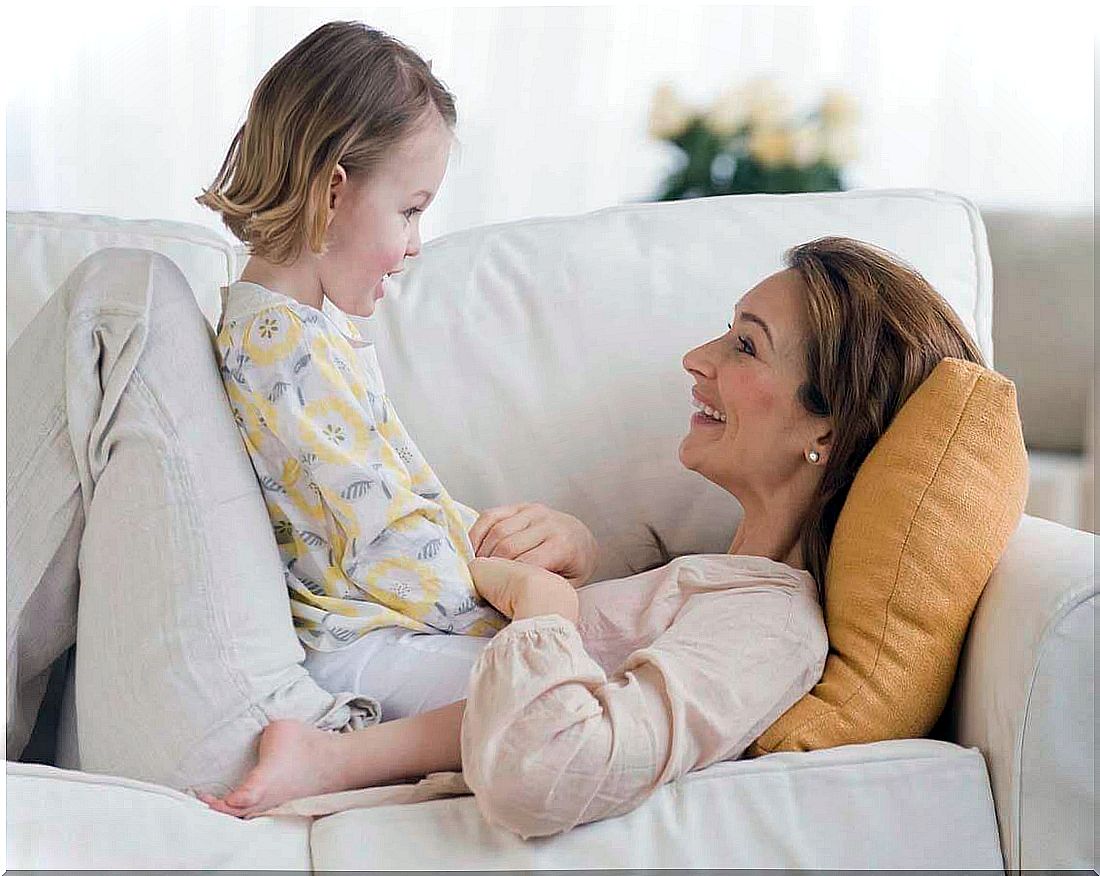How To Know If Your Child Listens To You When You Talk

Looking into each other’s eyes when speaking is essential for establishing a good level of communication. Look your child in the eye when you talk to them and make sure they do too. Making eye contact when you speak is a good technique to know if she is paying attention to you, as well as to attract her if she is not.
Also, always remember that the most important thing in learning to communicate with your child is to know that this technique is essential for cultivating a relationship full of cooperation and understanding.
Many children – and to be honest, many adults too – can only focus on one activity. That is why, before you start talking to your child, make sure he is looking at you and if not, call him by name to get his attention immediately. When you are sure you have his attention, start talking.
Applying these simple but foolproof techniques will save you time and frustration, because, for example, before you ask your child something, make sure he is paying due attention and understands what you are about to tell him. So, you won’t have to repeat the same thing over and over, which is not only annoying for you, but also for the baby and the rest of the family.
Also the fact of establishing a good and effective communication with you will make him feel better.
Establishing effective communication with your child has its benefits
Getting your child to pay attention to you helps you lay the foundation for a relationship based on good communication. And by doing it and making communication effective, this will be part of your relationship with him now, which is still small, and always … It is said, in fact, that the basis of any healthy relationship is good communication.
In addition, establishing good communication helps the child develop self-confidence and strengthen their relationships with others. These characteristics make his life more enjoyable and help him reach adulthood with good feelings towards himself, as well as fuel his ability to communicate with others.
Precisely this ability to establish and maintain good communication with your child will lead you to have a close and quality relationship, through which you can design cooperation strategies and express your feelings in a healthy way.
Conversely, poor communication will lead your child to foment frustrating relationships, which result in conflicts that lead to feelings of worthlessness.

Tips for getting your child’s attention when you speak
Learning to be a good communicator is an excellent investment not only for you but for your child as well. Surely, over time, he will be able to learn this good habit from you and will have the opportunity to express himself effectively and freely if you allow him to and teach him how to do it.
However, parents – and adults in general – now need to focus on better communication with children. To achieve this, you can take ideas from some of these tips from the guide titled Successful Strategies for Talking with Children, published by the Washington State Department of Health and Social Services.
Listen carefully to your child:
If you want your child to pay attention to you when you speak, learn to listen to him too. Pay attention to what your child tells you. To do this sometimes you need to stop doing what you were doing and other times you can watch it continue with your chores.
Children usually need about 30 seconds of your attention to share their findings, thoughts and enthusiasms. If you are very busy, you can tell him that you can’t at that moment, but that you will do it as soon as you can. If you do, keep your promise and most importantly, you don’t have to pretend that you are listening when in fact you are not, because he will notice and it is also possible that one day he will do it with you.
Give a clear message when you speak
If you want your child to place your order, then ask for simple things one at a time. If your goal is to bathe, have dinner, and go to sleep, ask them one at a time.
You need to know that children do their best to carry out one order at a time. At that age it is difficult for them to remember a series of orders, so to communicate with them objectively give simple orders.
Squat down when you talk to him

When talking to your young child, squat down and raise him so that you can look into each other’s eyes when you speak. This will help you get his attention and establish closer and more effective communication. Shouting does not give many results and neither does it give orders from a distance.
Let him know in advance
When it comes to major business changes and these are diametrically opposed to what he is doing at the moment, let him know in advance what will happen.
So, for example, if your child is having fun and happy playing with their friends, but it’s time to go home and go to sleep, you need to tell them what’s going to happen. You can try this: soon we will go home, when I call you say goodbye to your friends and let’s go.
Give instructions suited to their possibilities
If you want your 2-year-old son to fix his room, and you say, “My son, fix your room” it is definitely an inaccurate order, because he will feel confused and will not know what to do.
In this case it is much better to say “Let’s put the shoes in the closet” and when he does, then you can ask him to help you put his toys in a box and so on… until you reach the goal.
Another surefire tip for your child to pay attention and obey you is to ask for things in a good mood. We are all more willing when asked for things in a kind way and accompanied by a please.









